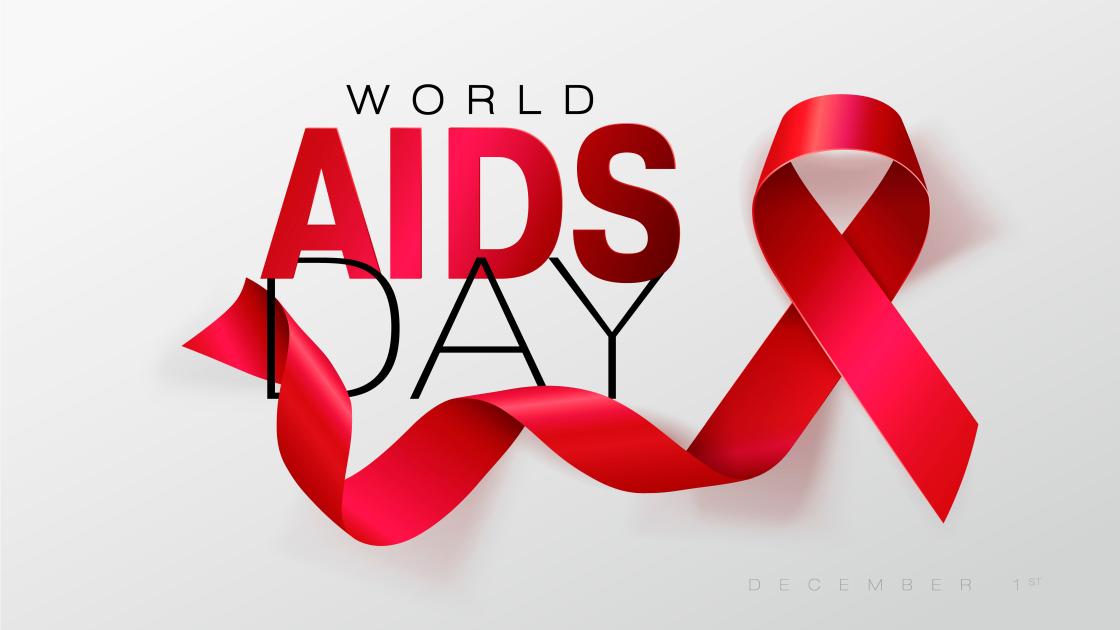
3 things you didn't know about HIV/AIDS
AIDS—acquired immunodeficiency syndrome—is a disease caused by a virus known as Human immunodeficiency virus (HIV). Identified initially in the 1980s, it used to be a fatal disease. Thankfully, the world has seen dramatic improvements in the prevention and treatment of this disease over the last few decades.
That said, there is still a lot of work we can do to reduce the stigma faced by people who test positive for HIV, and to improve equal access to care for our friends and neighbors living with this diagnosis. Join us as SIU Medicine honors World AIDS Day on December 1st and discover three things you might not know about HIV/AIDS.
1. Today, people diagnosed with HIV can expect to live a long, normal life with proper treatment.
Current medical treatments for HIV are so effective they can suppress the amount of virus in a person's body to such low levels that viral loads are undetectable in the blood. When viral loads are this low, a person can't pass HIV on to someone else. This is often referred to U=U, Undetectable = Untransmissible.
Known as antiretroviral therapy or ART, HIV treatment typically includes a combination of medicines, usually taken as one or two pills per day. ART doesn't cure HIV, but it does allow people who are HIV+ to live long and generally healthy lives, as long as they take their medications as prescribed.
2. People who are at higher risk of HIV can now take a medication to significantly reduce their chances of getting it.
Using condoms and not sharing needles are two of the most important things people can do to prevent acquiring HIV. Depending on their specific risk factors, a person who is HIV negative may also choose to take a medicine known as pre-exposure prophylaxis, or PrEP, to reduce their risk of contracting the virus.
According to the U.S. Centers for Disease Control and Prevention (CDC), PrEP is highly effective:
- PrEP reduces the risk of HIV from sex by about 99%
- PrEP reduces the risk of HIV from injection drug use by at least 74%
Certain groups of people are more likely to contract HIV, including young LGBTQ+ men (especially men of color) who have sex with other men, as well as people who share needles and use intravenous drugs. That said, anyone can get HIV.
If you're curious about whether PrEP is right for you, talk to your health care provider.
3. AIDS is the late stage of HIV—but thanks to treatment, most HIV+ people in America won't get it.
When left untreated, HIV can damage a person's immune system, which makes it harder for them to fight off illnesses and infections. Eventually, people in the advanced stages of HIV can develop AIDS, which doctors define clinically as:
CD4 cell count below 200 per cubic millimeter of blood (CD4 cells are a type of white blood cells made by your immune system)
Being HIV+ while also developing one or more opportunistic infection like thrush, herpes simplex and toxoplasmosis
Thankfully, most people in America who are living with HIV (about 1.2 million people) won't develop AIDS because they take HIV medication every day to control or stop the progression of the disease.
Do you have questions about HIV/AIDS?
If you have questions about health conditions like HIV/AIDS, check out World AIDS Day or call SIU Medicine at 217-545-8000 to schedule a confidential appointment.




